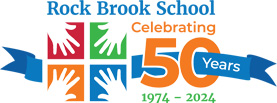Parental involvement in children’s academics has proven to be very beneficial to their success in school. Children’s early reading experiences with their parents prepare them for formal instruction in literacy. Being involved in your child’s reading directly influences their language and literacy skills. Specifically, positive impacts on their compression and expressive language skills have been reported. Parental involvement in children’s reading is more impactful to their literacy development than is family background, social class, and parental education. Although the most beneficial joint reading starts when your child is young, it can be beneficial at any age, such as elementary and high school. It’s never too late to engage your child in literacy practice. During joint reading, parents and children take turns reading from the pages with whatever language skills and imaginary skills are available to them. Usually parents take the lead in reading the story, pausing for their child to fill in an idea, and encourage them to take over the story whenever they wish to. Often times, the parents allow the child to take the lead and scaffold as needed.
Here are some examples/ideas to help promote joint reading with your child:
- Ask your child questions. For example, for a beginner reader, ask simple “wh”- questions (e.g., what, where, when, why). For a more advanced reader, ask your child to make predictions, ask how the characters feel, and ask what your child has learned.
- Identify and discuss new vocabulary words.
- Choose themed books to elaborate on words from a particular category.
- Play games with words, such as a synonym or antonym game.
- Make a word web by writing or use picture symbols (whatever is applicable).
- Hone in on prepositions and play a “Simon Says” game and have your child work on following directions (e.g., Simon says put the ball under your chair) and link these ideas to the book.
- Have your child retell the story (using the pictures to help if needed). Story retelling is a very beneficial skill which helps your child demonstrate comprehension, fosters imagination, and helps make connections to their world.
